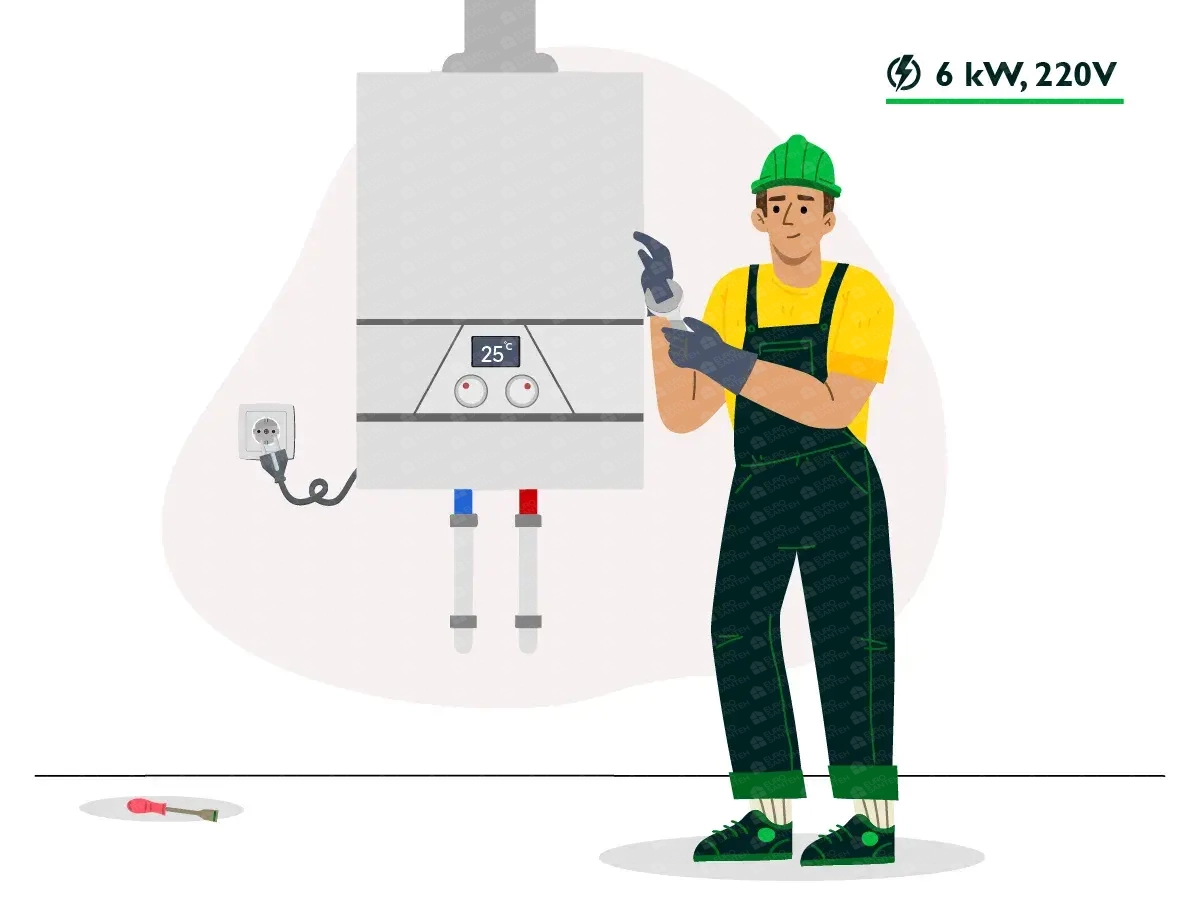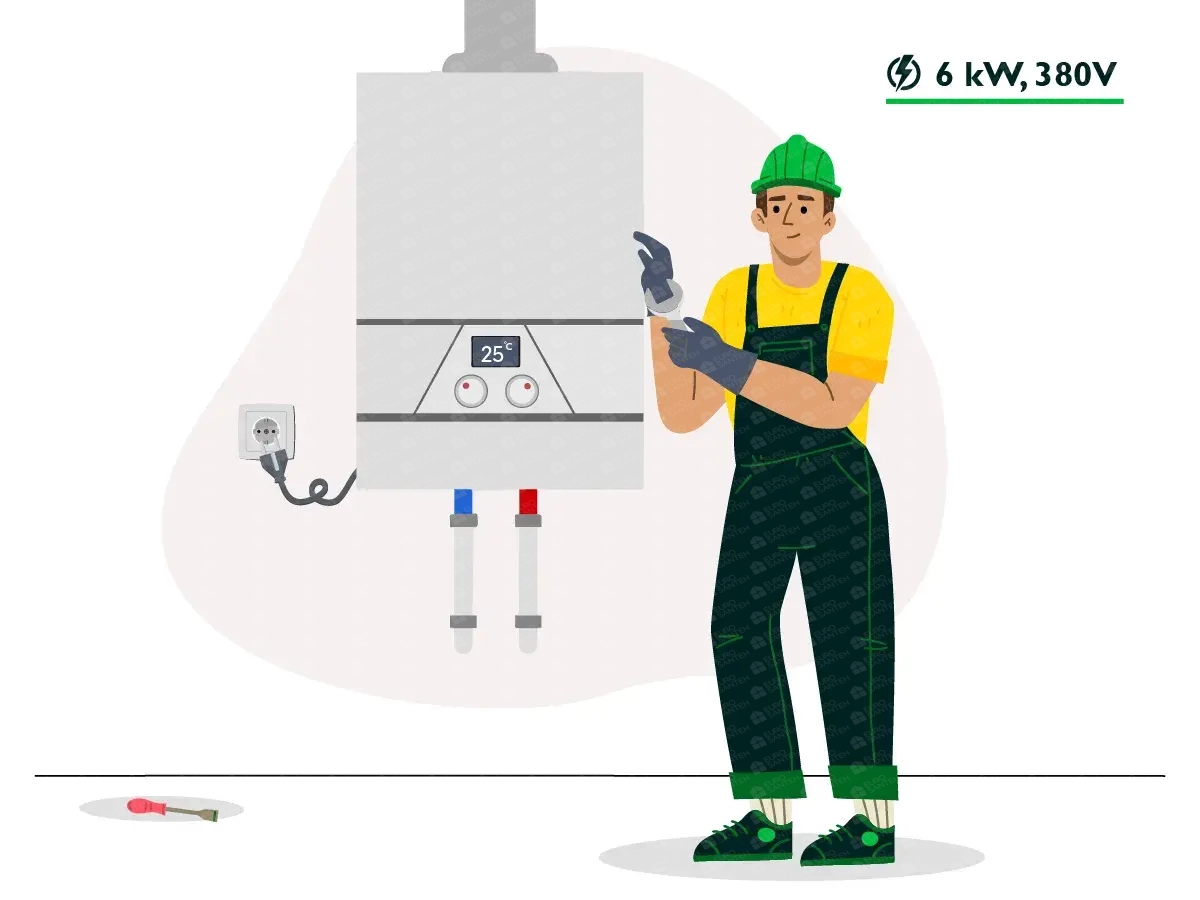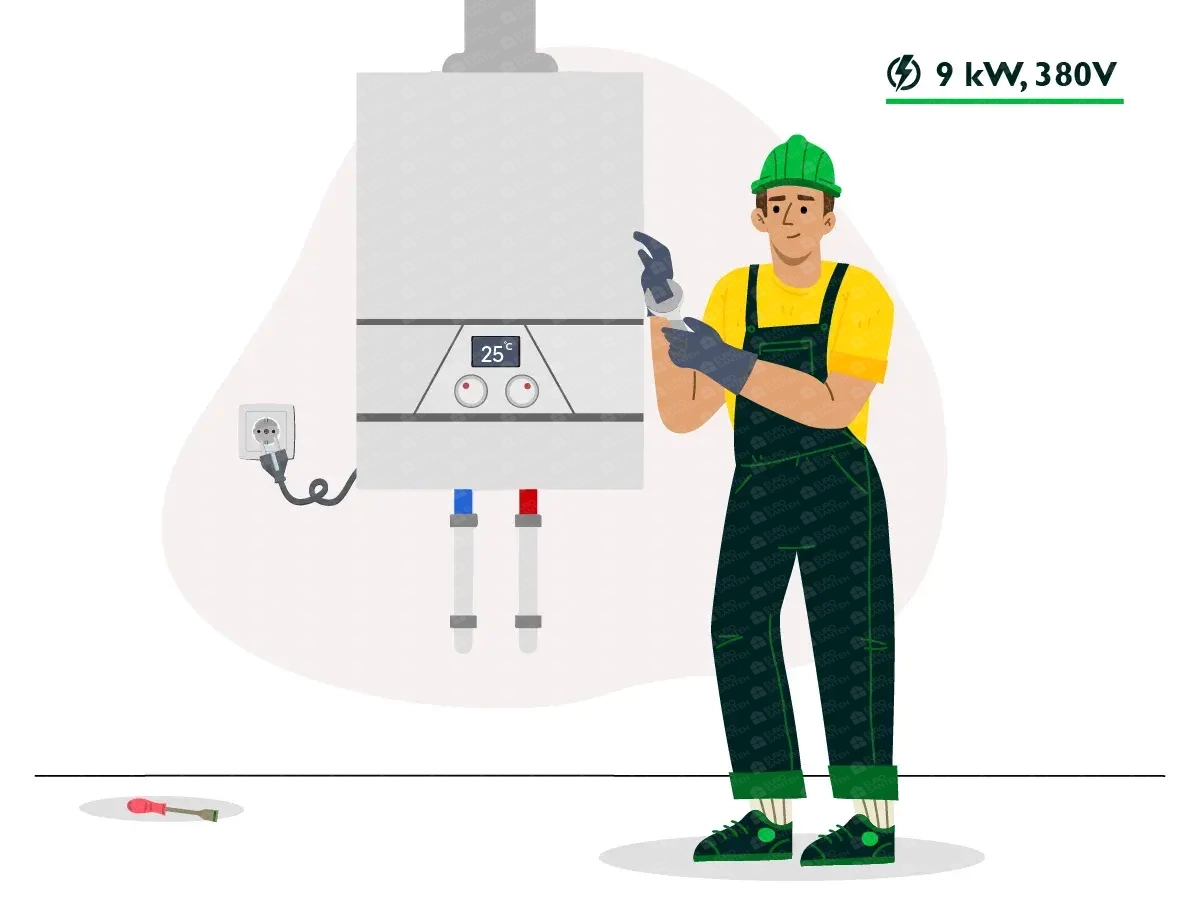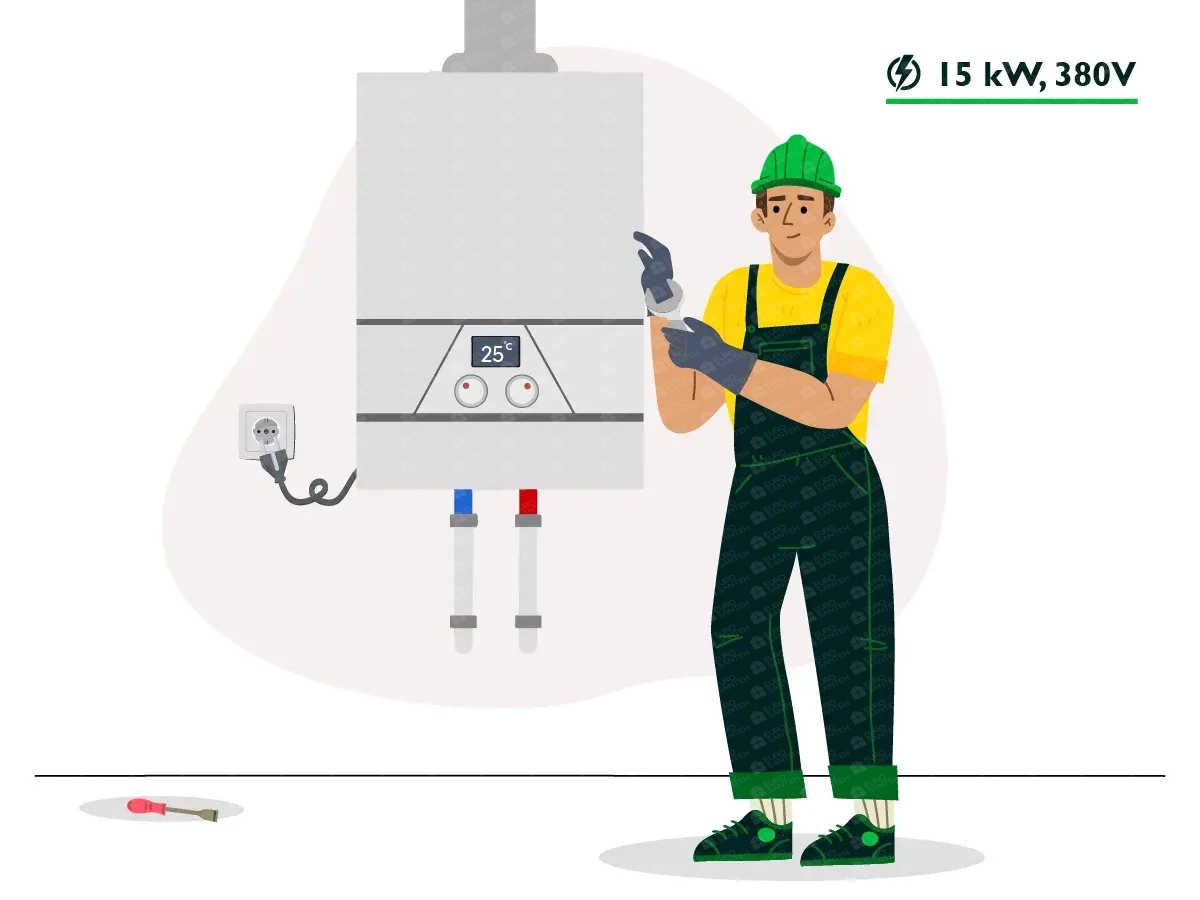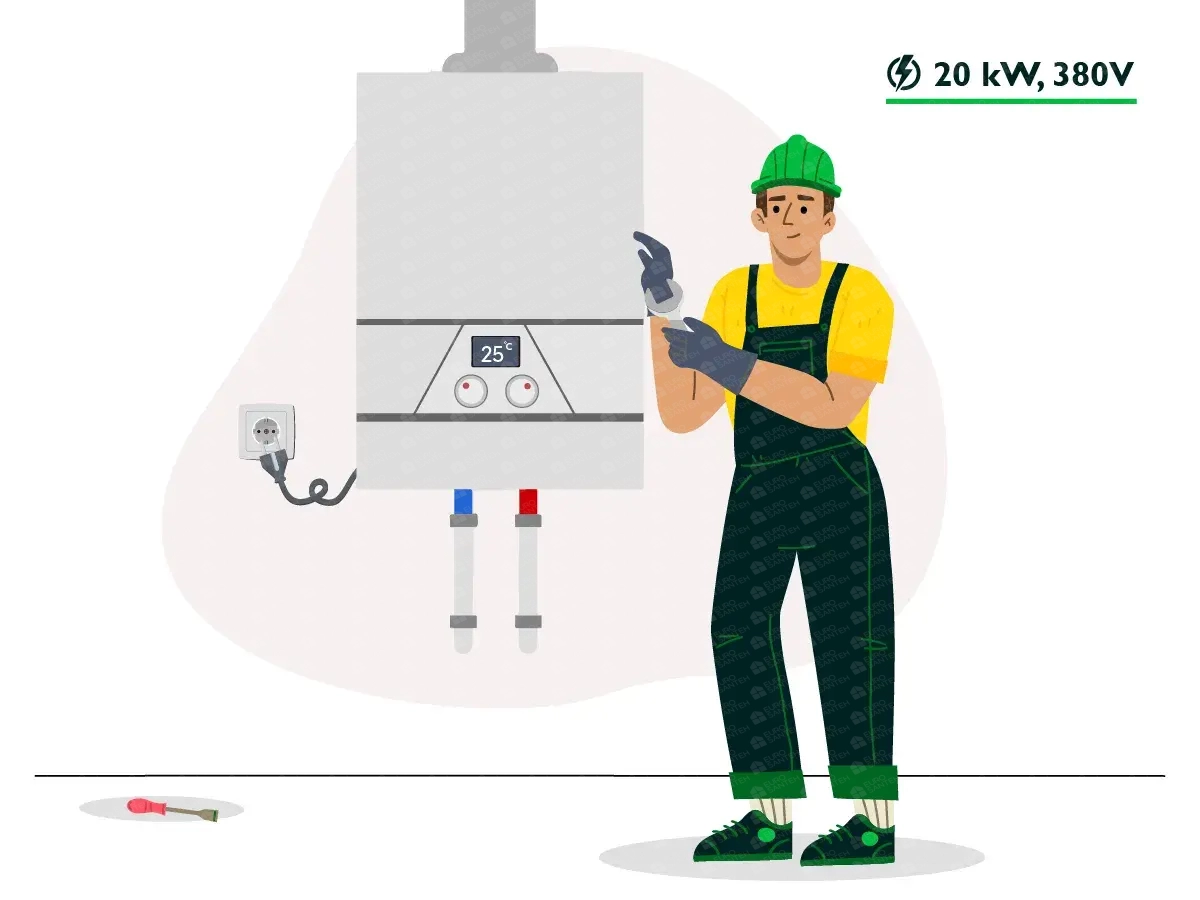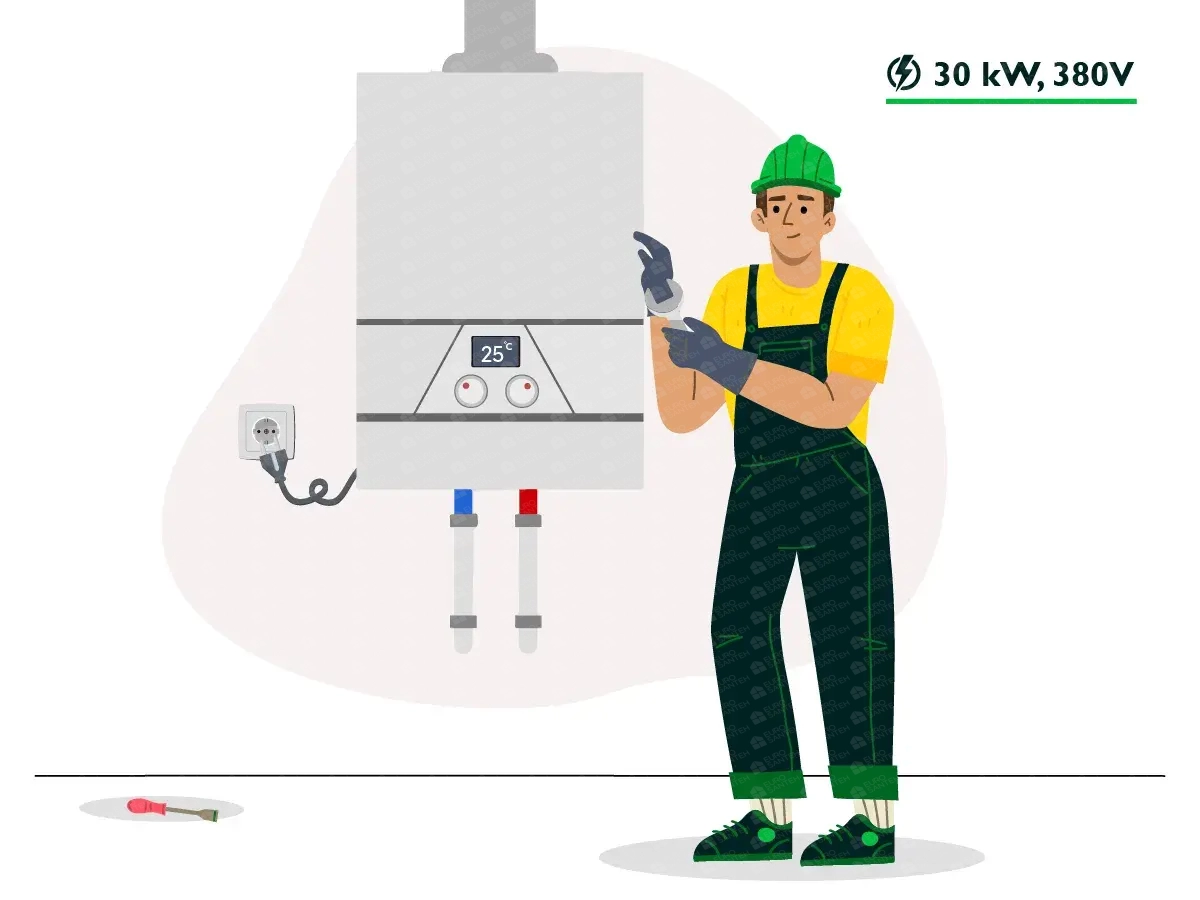Installation of an electric boiler in a private house in Chisinau
The installation of an electric boiler in a private house is a crucial step in ensuring an efficient and reliable heating system. Electric boilers have gained popularity due to their environmental friendliness, safety, and ease of use. They provide consistent and effective heating, making them an excellent choice for homeowners looking for a modern solution to their heating needs. Proper installation is key to maximizing the benefits of an electric boiler, and it involves several detailed steps and considerations.
The first step in installing an electric boiler is selecting the right equipment. The market offers a wide range of electric boilers, each varying in power, design, and features. It is essential to choose a boiler that matches the specific requirements of your home. Factors to consider include the size of the house, the level of insulation, and the local climate. Consulting with a heating professional can help you determine the optimal capacity and specifications of the electric boiler for your home.
Once you have chosen the appropriate boiler, the next step is to identify the installation location. The electric boiler should be installed in a dry, well-ventilated area such as a utility room, basement, or a specially designated technical room. This location should provide easy access for maintenance and repairs. Additionally, there should be sufficient space for installing the electrical panel and protective devices like circuit breakers and residual current devices (RCDs).
Preparing the electrical system is a critical aspect of installing an electric boiler. Electric boilers require a dedicated high-voltage power supply line. This means that a separate electrical circuit must be installed to ensure safe and efficient operation. The electrical wiring must comply with all safety standards and regulations. It is recommended to use copper wires with appropriate cross-sections to prevent overheating and potential accidents. Installing circuit breakers and RCDs will protect the system from short circuits and overloads.
After preparing the electrical system, the next step is to mount the boiler. The boiler is first securely fixed to the wall or placed on a special stand to ensure stability. Then, all necessary connections are made, including water supply, heating system pipes, and electrical power. It is crucial to make airtight connections to avoid leaks and other issues during operation.
Once all connections are in place, the system needs to be set up and tested. This involves commissioning the boiler, checking the accuracy of the connections, configuring the automatic control systems, and ensuring all components operate correctly. It is vital to verify that the boiler functions smoothly and that all safety systems are operational.
An essential part of the installation process is educating the users. Homeowners should be informed about the basic rules for operating the electric boiler, safety measures, and procedures to follow in case of malfunctions. Professionals performing the installation should provide detailed explanations on how to use the boiler, adjust the temperature, and respond to emergency situations.
Regular maintenance is necessary to ensure the longevity and efficiency of the electric boiler. This includes annual inspections by a qualified technician, cleaning the heat exchanger, checking the electrical connections, and verifying the proper operation of the automatic control systems. Regular maintenance helps prevent unexpected breakdowns and extends the lifespan of the boiler.
Moreover, it's important to consider the environmental impact of using an electric boiler. Electricity, especially when sourced from renewable energy, is an environmentally friendly form of energy. Utilizing electric boilers can reduce harmful emissions and contribute to improving the local environmental quality.
Additionally, integrating smart home technology with your electric boiler can enhance its efficiency and ease of use. Smart thermostats and home automation systems allow remote control and monitoring of the boiler, enabling you to adjust settings and receive alerts about potential issues. These technologies can optimize energy use, resulting in lower utility bills and a reduced environmental footprint.
When installing an electric boiler, it's also crucial to consider the legal and regulatory requirements. Different regions have specific codes and standards that must be adhered to, including obtaining necessary permits and scheduling inspections by local authorities. Ensuring compliance with these regulations not only guarantees safety but also helps avoid potential legal issues and fines.
Furthermore, the initial cost of installing an electric boiler might be higher compared to other heating systems. However, the long-term benefits, such as lower maintenance costs, higher energy efficiency, and improved safety, make it a worthwhile investment. Electric boilers do not require fuel storage or combustion air supply, which simplifies installation and reduces overall costs.
In summary, the installation of an electric boiler in a private house is a comprehensive process that requires careful planning, adherence to safety standards, and professional expertise. By following the correct procedures and ensuring regular maintenance, you can create a reliable and efficient heating system that provides comfort and warmth to your home for many years to come. The investment in a high-quality heating system will pay off in terms of durability, efficiency, and enhanced comfort and safety in your home. Whether you are replacing an old boiler or installing a new system, taking the time to do it right will ensure that your home remains warm and comfortable throughout the year.
